Six Key Laboratory Issues Solved by LIMS Software
Laboratory issues such as lost samples, data entry errors, and improper care of lab equipment are an everyday struggle for some labs. In an effort to prevent these lab issues and better manage samples and complicated workflows, many labs employ a lab management systems or a LIMS. Laboratory Information Management Systems (LIMS) help manage complex data, equipment, system access, labeling, sample tracking, and communications within the lab, just to name a few features.
From clinical labs to academic and research groups, if you struggle in any of these areas it’s probably time to integrate a LIMS system in your lab. With LIMS software you’ll be set up to solve all your lab problems and gain numerous additional capabilities that will further streamline your lab operations.
Common Laboratory Issues:
- Data entry errors – Experiments can generate more data than we know how to manage and analyze. Messy, manual analyses methods can lead to errors in your datasets and overlooked trends.
- Improper care of lab equipment – Keeping all your lab equipment calibrated and maintained, as well as preventing double bookings and unauthorized users can be difficult. Since laboratory instruments are likely the single biggest investment in your lab, equipment management is a critical step in preventing costly mistakes.
- Error prone sample tracking – Mismanaged and mislabelled samples can result in testing errors, delays, or worse, lost samples. Knowing where your samples are located, what stage of testing they are in, and how they should be stored is the first step towards successful lab management.
- Inaccurate inventory tracking – When materials go missing, expire, or don’t get reordered in time, lab personnel are left delayed and unable to perform their experiments. This can become a common issue in your lab if you are not tracking the storage and usage of consumables like reagents, kits, and protective equipment.
- Ineffective workflow management – Successful lab workflows rely on each lab technician following the precise procedures from the current and approved SOPs (standard operating procedures). Using an outdated SOP or missing steps in a procedure can lead to inaccurate results and compliance issues.
- Data access and security – With the increased danger of cyberattacks, data breaches, and leaks, labs must guarantee that sensitive data is kept safe and secure. This is especially important in healthcare and clinical labs which must protect personal health information.
Lab Data Management Errors
The sheer volume and complexity of data that is produced in labs everyday is incredible. However, messy, manual analyses methods can result in errors in your datasets and overlooked trends. Common issues in lab data management include:
- Miscalculations – Relying on manual calculations leaves room for costly human errors. A LIMS system is able to automatically calculate concentrations, volumes, and other lab measurements with the click of a button.
- Mislabeled data – A single lab technician can run hundreds of samples through multiple tests in just one day, making it easy for small mistakes like mislabelling a test record to occur. A LIMS system automatically updates sample records and maintains a complete audit trail so any mishaps can be flagged and fixed.
- Missing data – Scouring through lab notebooks and aimlessly searching through excel sheets looking for missing data is exhausting and time consuming. A LIMS system solves this by structuring your data within an easily searchable database.
- Poorly reported data – Compiling thousands of pieces of raw data into a customer ready report is tedious and limited. A LIMS system provides users with easy tools to harvest large amounts of raw data and compile organized PDFs and dashboards.
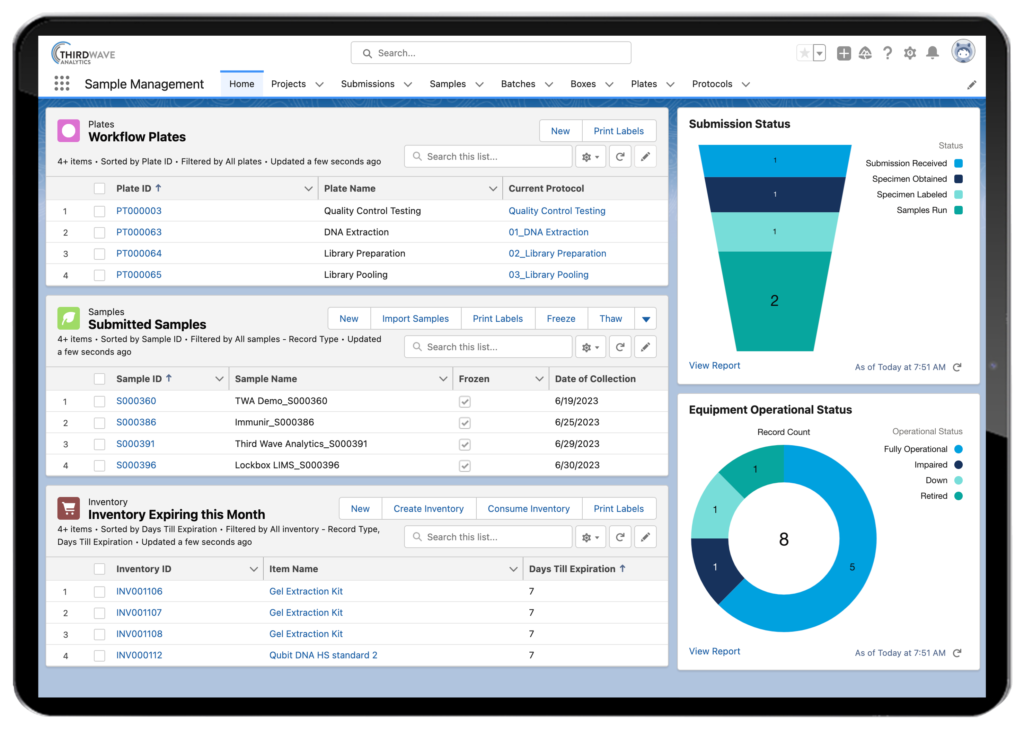
Improper Care of Lab Equipment
Your laboratory’s equipment is likely the single biggest investment at your lab and absolutely critical to your workflows. Failing to maintain your equipment could result in equipment failure, costing your lab additional money and time. Common problems in lab equipment management include:
- Uncalibrated equipment – Calibrating your equipment is an essential part of lab management but this task can be tedious and usually requires specialized laboratory personnel. A LIMS system provides automated reminders for upcoming calibrations and organizes training records to ensure only authorized users can calibrate the equipment.
- Missed routine maintenance – Your lab instruments are working around the clock which means regularly scheduled maintenance events are critical for preventing lab equipment malfunctions. A LIMS system provides automatic alerts to remind staff when equipment maintenance is due and provides a secure database to track past and future maintenance events.
- Double booked lab equipment – Every researcher knows what it feels like to show up to the lab and see the equipment you need being used by someone else. A LIMS system prevents double booking errors by allowing lab users to book time on equipment and see in real-time who is using what instrument.
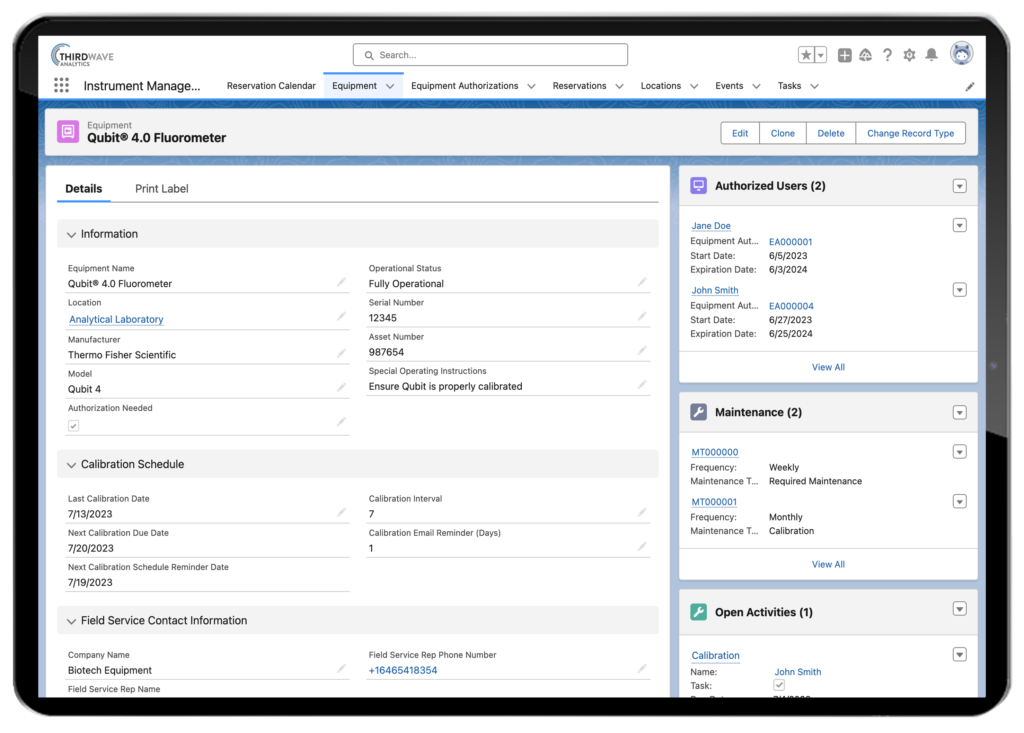
Error-prone Sample Tracking
Lab management in clinical laboratories is heavily reliant on effective sample tracking. Poor sample management inevitably leads to delayed clinical reporting or, worse, lost samples. Sample errors and testing delays will also plague any lab that relies on manual sample tracking using generic tools like Microsoft Excel or Google Sheets. Laboratory issues associated with sample tracking include:
- Mislabelled samples – Sample labelling and naming is a critical component of sample management since mislabelled samples can lead to errors during testing and reporting. A LIMS system automatically assigns unique identifiers to each sample and generates barcode labels that can be used to quickly scan and manage samples in real-time.
- Improperly stored samples – Samples have very specific storage needs and improper storage can lead to sample degradation or misplacement. A LIMS system keeps record of each samples location in your lab, down to their exact position in a box.
- Incorrect workflows – Some labs work with thousands of samples at a time making it easy for workflow errors to occur. Running the wrong sample through the wrong test can lead to wasted lab supplies and time. A LIMS system prevents workflow errors by automating the testing process and alerting users when quality control checks or thresholds are not met.
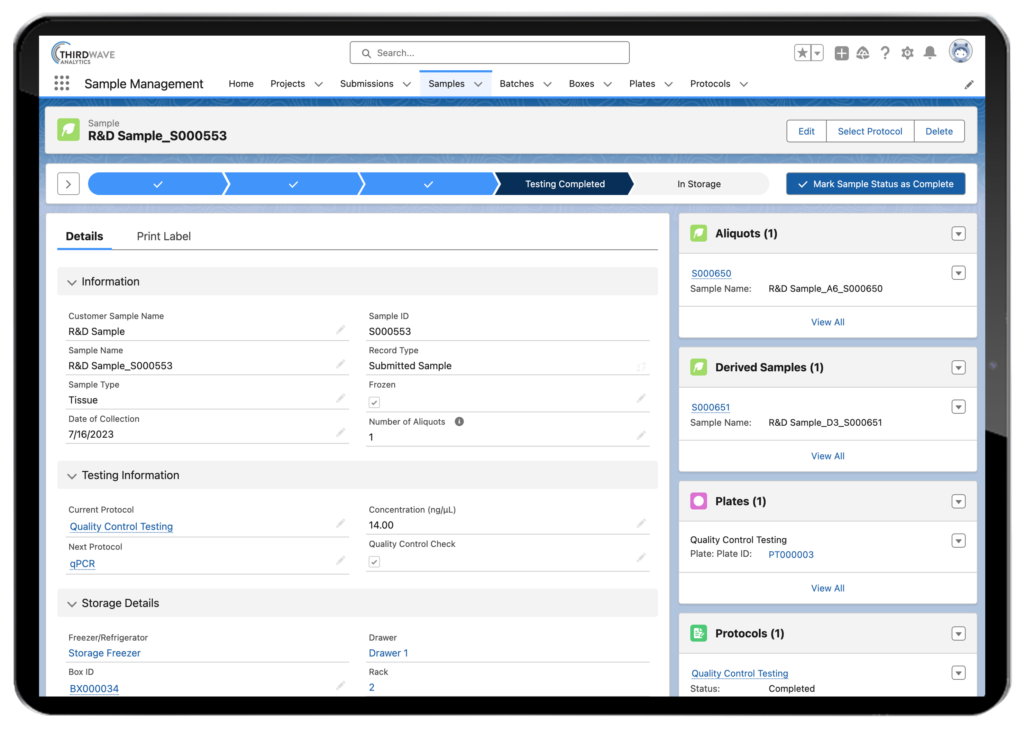
Inaccurate Inventory Management
Labs that do not invest in comprehensive inventory management systems likely experience delays as they wait for inventory to be reordered and stress as they deal with missing or expired inventory. Laboratory issues associated with inadequate inventory tracking include:
- Expired inventory – Consumables like reagents, catalysts, and kits have expiration dates, that when passed can impact the success of the experiment. A LIMS system helps prevent your inventory from expiring unnoticed by automatically alerting users when items are close to their expiration.
- Missing inventory – Keeping track of every item that enters the lab is difficult, especially if you are manually entering items into an Excel or Google sheet. This can lead to inventory items being stored in the wrong location or misplaced after they are used. A LIMS system allows inventory items to be scanned into the system using barcode labels and records each items exact location in the lab.
- Inventory does not get reordered on time – Knowing when to reorder your inventory items can be tricky since consumables like solvents and reagents get used at different rates and by different people in the lab. A LIMS system automatically alerts users when inventory stocks are running low and keeps record of all the procurement information like the suppliers name, catalog number, and price.
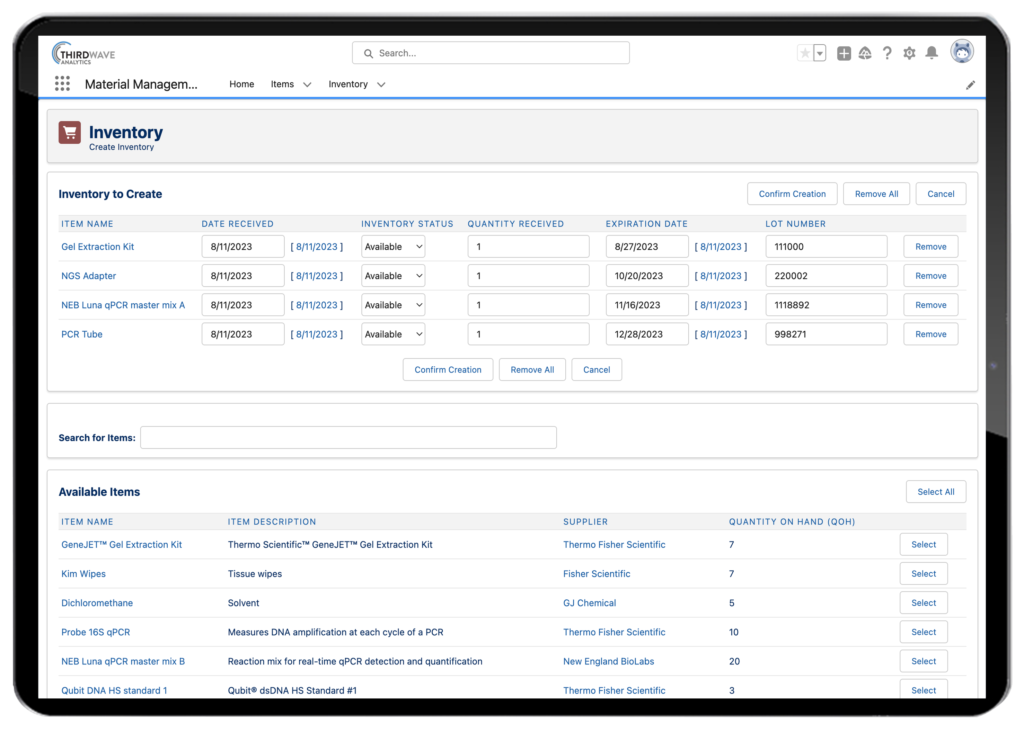
Ineffective Workflow Management
When processing a sample, your lab must get an accurate, reproducible result. This requires each lab worker to follow the precise procedures from the current and approved SOP (standard operating procedure). This must be the case regardless of who is processing the sample or performing the test. Laboratory issues regarding workflow management include:
- Outdated SOPs – Using an outdated SOP can lead to missed steps, incorrect reagents, or inaccurate results. A LIMS system maintains historic versions of all SOPs and automatically updates workflows when new versions are added.
- Inadequate quality control checks – Many labs follow strict quality control guidelines, with the success of their experiments depending on specific thresholds being met. A LIMS system provides automated alerts when quality control checks are failed allowing users to identify errors and record deviations.
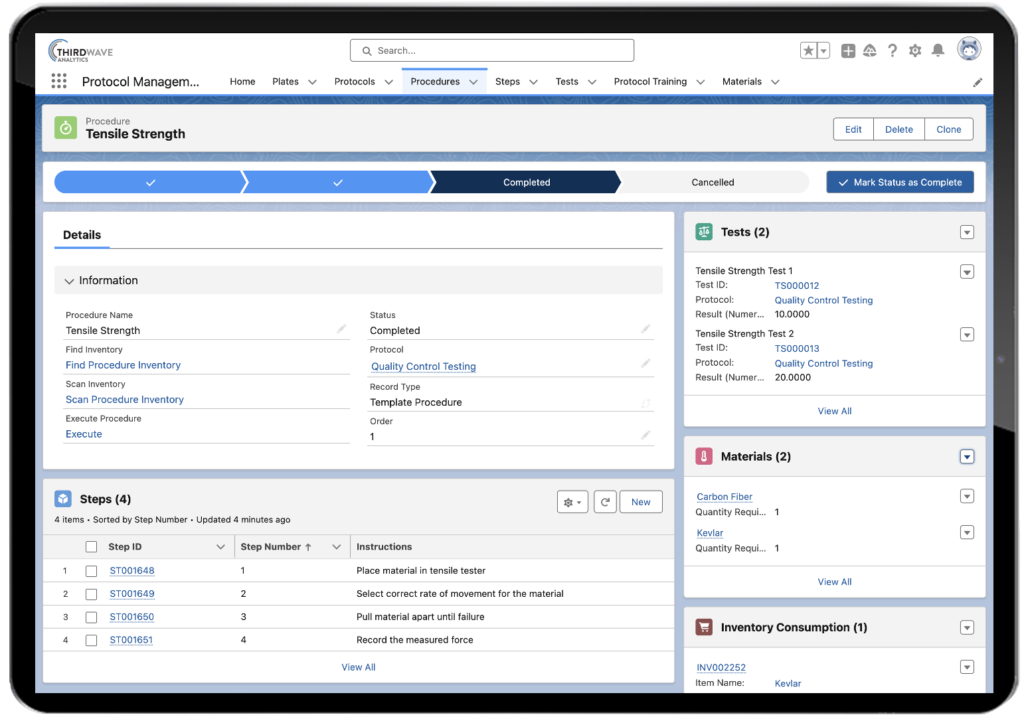
Data Access and Security Issues
With the increased danger of cyberattacks, data breaches, and leaks, labs must guarantee that sensitive data is kept safe and secure. It is imperative that your lab store all data in a secure manner that has controlled access. Only a system such as a LIMS will ensure the appropriate level of data safety and security. Common lab data management issues include:
- Unprotected sensitive data – Clinical and medical labs deal with Protected Health Information (PHI) and other sensitive data that must be kept safe and secure to meet regulatory and compliance standards. Google and Excel sheets leave room for data breaches and leaks while a LIMS system is built to keep all your labs sensitive data secure.
- Unrestricted access – Any system used to store sensitive data needs to have login security and access controls. A LIMS system provides two factor authentication for login protection and individual based access permissions to ensure only authorized users can view your sensitive data.
Laboratory Issues Solved with Lockbox LIMS
When choosing the right LIMS, it important to select software that will work well specifically for your lab. Because every lab operates slightly differently, the LIMS must be flexible and configurable to meet your needs.
Third Wave Analytics has years of experience implementing custom LIMS for a wide range of labs. Our clients span all types of fields, and include FDA-regulated pharmaceutical labs, CLIA-regulated clinical testing labs, academic cores, NGS-specific labs, agriculture research labs, and even non-biological analyte testing labs. When assessing the right LIMS for your lab, consider how Third Wave Analytics can help create a LIMS to meet your lab’s specific needs.
What is a LIMS and how can it best benefit your lab? For answers and a free trial, contact our experts today.